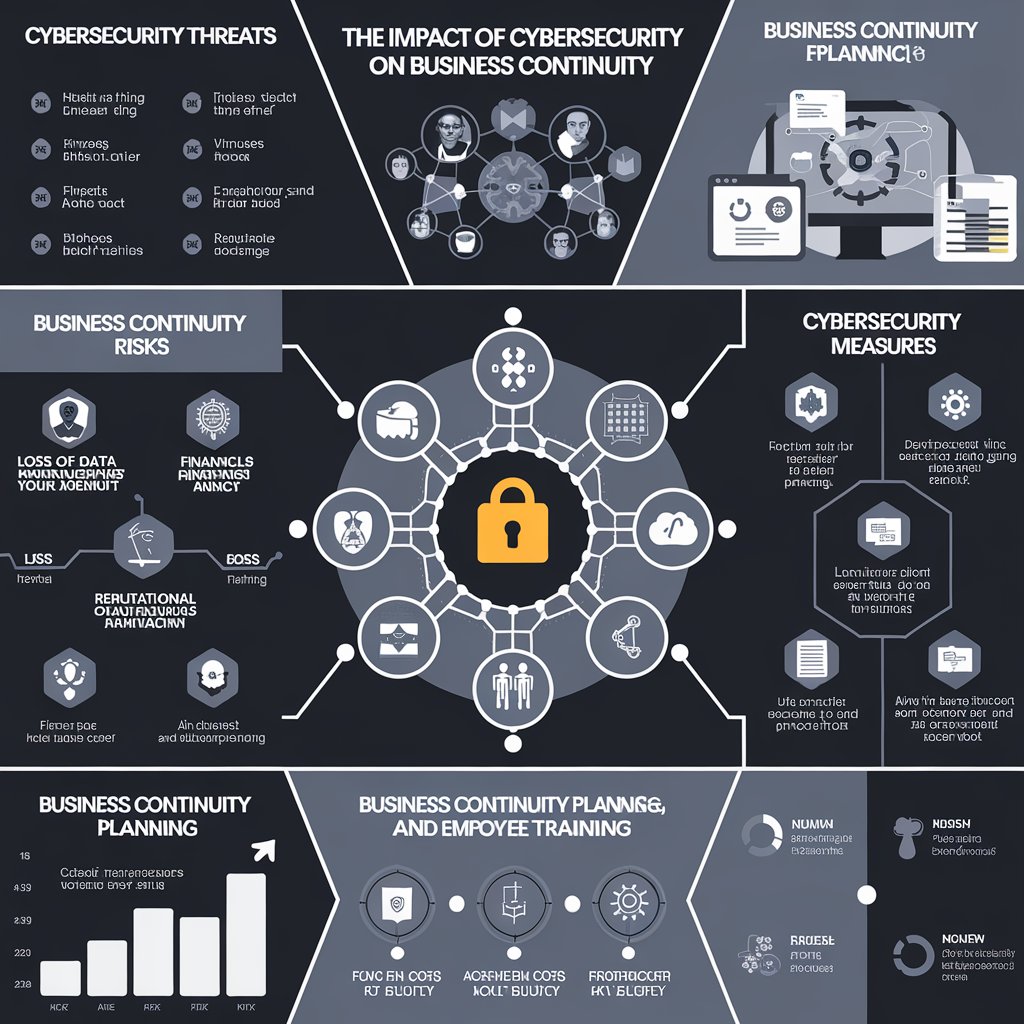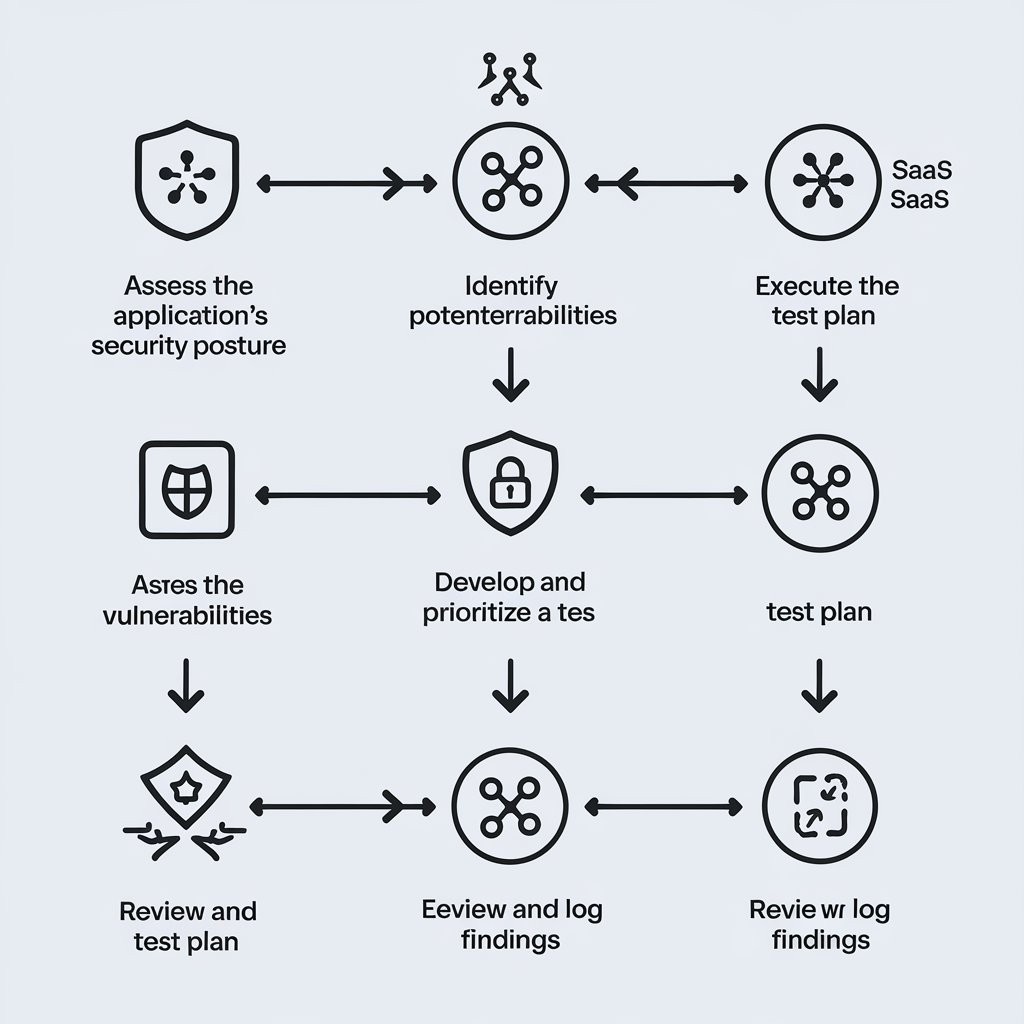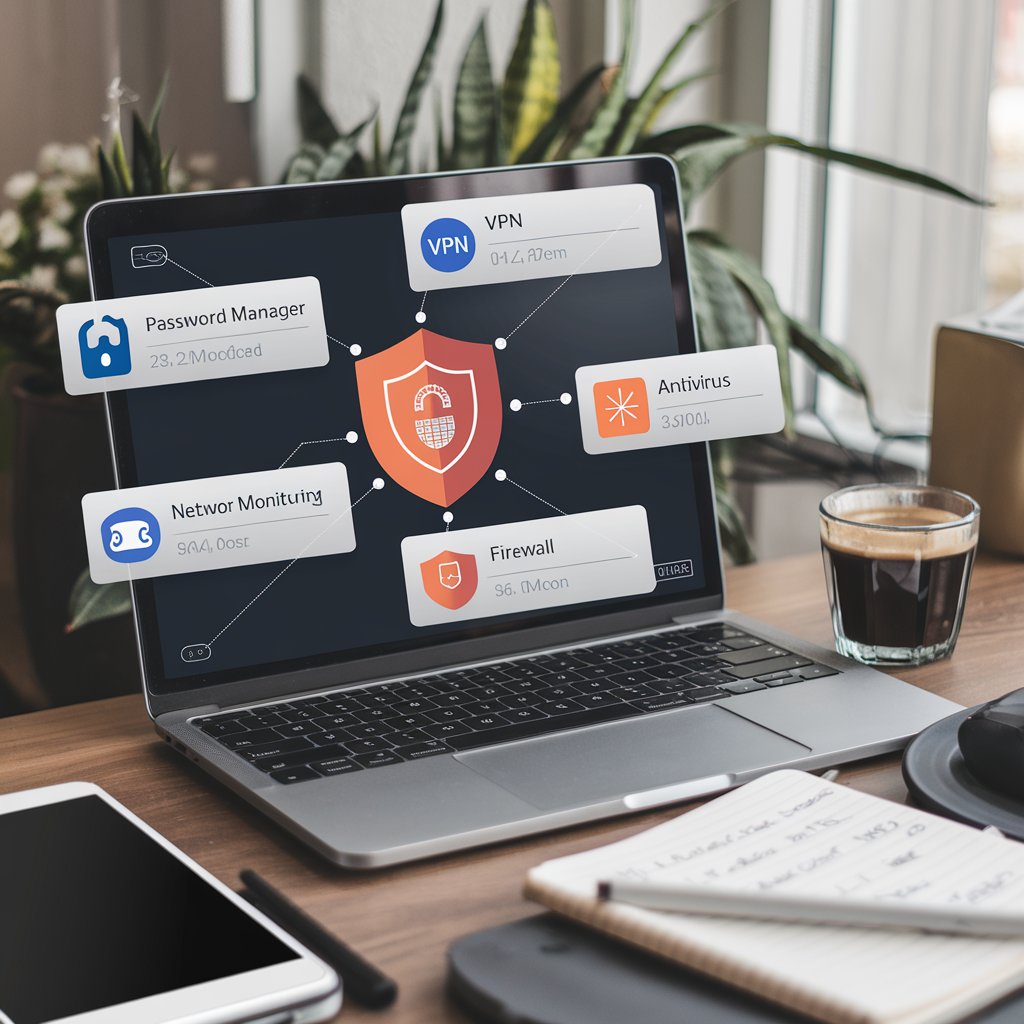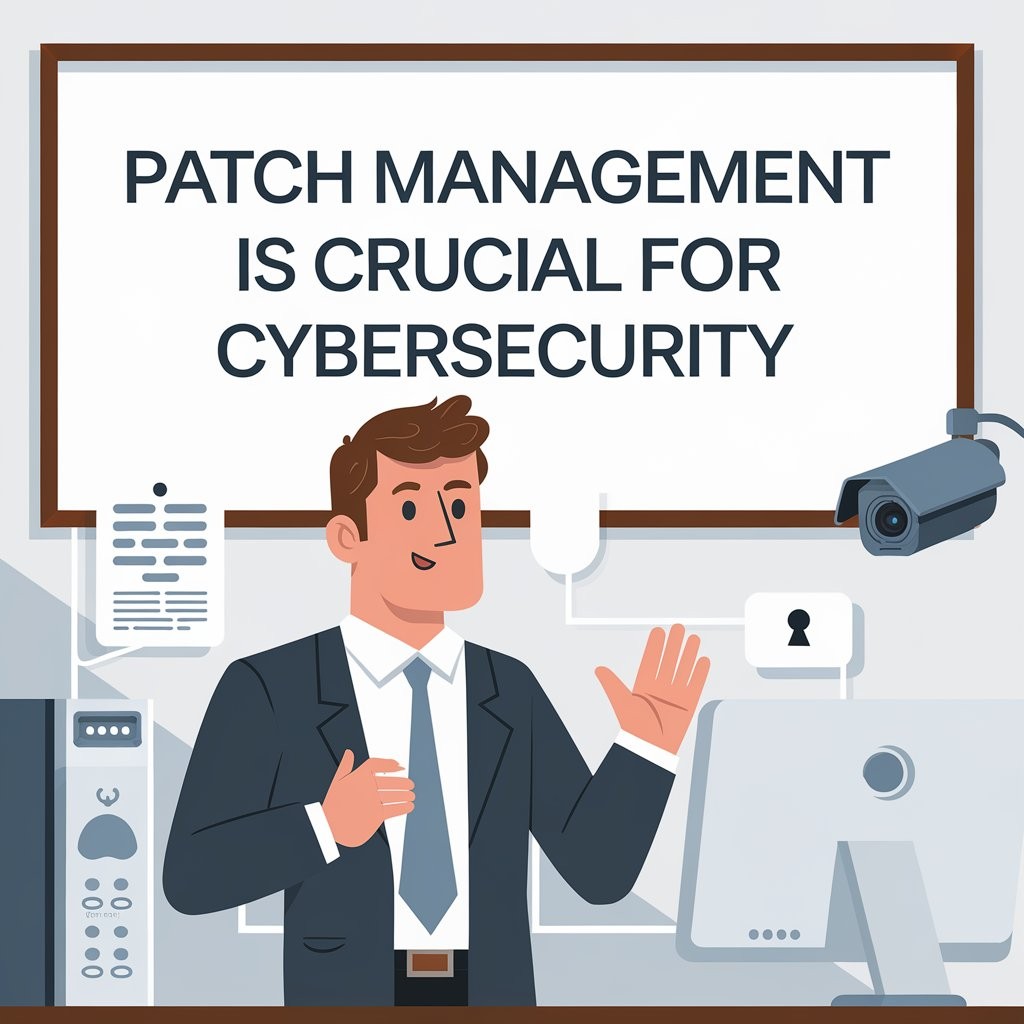UA
10 Min Read
Understanding Business Continuity
Business continuity refers to the ability of an organization to maintain essential functions during and after a disruption or disaster. This could include a variety of events, such as natural disasters, power outages, system failures, or cyberattacks. A well-prepared business continuity plan (BCP) ensures that a company can quickly recover and continue operations with minimal downtime and loss of data.
However, a key component of any BCP is cybersecurity. A company with weak cybersecurity measures is vulnerable to cyber threats that can derail business operations, damage reputations, and lead to significant financial loss. Therefore, organizations need to integrate cybersecurity as an essential part of their continuity strategy.
Cybersecurity Threats That Impact Business Continuity
Ransomware Attacks
Ransomware is one of the most devastating cyber threats businesses face today. In these attacks, cybercriminals encrypt an organization's data and demand a ransom in exchange for the decryption key. Ransomware attacks can halt business operations, disrupt services, and even lead to permanent data loss if backups are inadequate. With the increasing sophistication of these attacks, organizations must ensure that they have the right cybersecurity measures in place to prevent and respond effectively.Data Breaches
Data breaches expose sensitive business and customer information, such as financial records, personal details, and intellectual property. Beyond the immediate financial impact, a data breach can harm an organization’s reputation, erode customer trust, and lead to regulatory fines. Cybersecurity helps protect sensitive data and ensures that businesses can continue operating without interruption due to security incidents.Distributed Denial-of-Service (DDoS) Attacks
A DDoS attack aims to overwhelm a network or website with traffic, rendering it inaccessible to legitimate users. These attacks can disrupt online services and damage business operations, especially for e-commerce companies or organizations that rely heavily on their online presence. Effective cybersecurity can mitigate the risk of DDoS attacks by using tools such as traffic filtering and load balancing to ensure continuous access to critical services.Insider Threats
Insider threats can be just as damaging as external cyberattacks. Employees or contractors with access to sensitive systems may inadvertently or maliciously compromise data or disrupt business operations. Cybersecurity measures like role-based access controls, regular audits, and employee training can help mitigate these risks and maintain business continuity.
How Cybersecurity Enhances Business Continuity
Minimizing Downtime and Disruption
One of the primary benefits of cybersecurity in business continuity is reducing downtime during and after a cyber incident. By preventing attacks such as malware infections, data breaches, or ransomware, cybersecurity ensures that systems remain operational and services stay available. If an attack does occur, a robust cybersecurity strategy—such as incident response plans, backups, and disaster recovery solutions—ensures quick recovery and minimizes the disruption to business operations.Protecting Critical Business Data
Business continuity depends on the availability and integrity of critical business data. Cybersecurity plays a key role in protecting data from unauthorized access, corruption, or loss. With advanced encryption, secure storage, and data backup practices, organizations can ensure that sensitive data is safeguarded against cyber threats, enabling quick recovery and continuity of operations in the event of an attack.Enabling Secure Remote Work
The rise of remote work has increased the need for secure access to business systems from external locations. A breach or compromise of remote connections can disrupt operations and cause significant data loss. Cybersecurity solutions like VPNs (Virtual Private Networks), multi-factor authentication (MFA), and secure endpoint management ensure that employees can work securely from anywhere without compromising business continuity.Ensuring Regulatory Compliance
Many industries are subject to strict regulatory requirements regarding the protection of sensitive information and data privacy. Non-compliance can result in financial penalties, legal liabilities, and reputational damage. Cybersecurity is crucial in ensuring that organizations meet these regulatory requirements, which in turn helps maintain business continuity by avoiding disruptions caused by legal issues.Maintaining Customer Trust and Reputation
A company’s reputation is one of its most valuable assets, and cybersecurity is essential to maintaining that reputation. Customers trust businesses with their personal data and expect it to be protected. A breach or data loss can significantly damage customer trust and lead to loss of business. By investing in robust cybersecurity, organizations protect not only their data but also their reputation, ensuring that customers continue to engage with their services without concern.
Key Cybersecurity Strategies for Business Continuity
Regular Security Audits and Penetration Testing
Regular penetration testing helps businesses identify vulnerabilities in their systems before attackers can exploit them. Conducting regular security audits also ensures that cybersecurity policies and procedures remain effective as new threats emerge. By addressing vulnerabilities proactively, businesses reduce the risk of disruptive cyber incidents.Comprehensive Backup and Disaster Recovery Plans
Regular data backups are essential for maintaining business continuity during a cybersecurity incident. Businesses should implement cloud-based or off-site backups to ensure that data can be recovered quickly in case of ransomware attacks or system failures. Disaster recovery plans should be tested regularly to ensure that organizations can restore their operations swiftly.Employee Training and Awareness
Employees are often the first line of defense against cyberattacks. Phishing attacks and social engineering tactics often target employees to gain access to company systems. Regular training on identifying phishing emails, using strong passwords, and maintaining secure practices is essential for minimizing the risks associated with human error.Incident Response Plan (IRP)
An effective incident response plan is crucial for mitigating the impact of a cyberattack. Businesses should develop a comprehensive IRP that outlines the steps to take when a cyberattack occurs, including containment, investigation, recovery, and communication protocols. A well-prepared response helps businesses resume operations faster with minimal damage.Implementing a Zero Trust Architecture
Zero Trust is a security framework that assumes no one—inside or outside the organization—should be trusted by default. Every access request, whether it originates from within the organization or from an external user, must be authenticated and authorized before being granted. This principle significantly reduces the risk of unauthorized access and breaches, strengthening business continuity.
ConclusionAs businesses continue to evolve in a digital-first world, cybersecurity has become an integral part of maintaining business continuity. Cyberattacks have the potential to disrupt operations, damage reputations, and cause significant financial losses. By implementing robust cybersecurity measures, such as penetration testing, data backups, employee training, and a well-defined incident response plan, organizations can minimize downtime, protect critical data, and ensure the smooth continuation of operations.Business continuity and cybersecurity are two sides of the same coin. A proactive approach to cybersecurity is not just about preventing attacks but also about ensuring that, if an attack occurs, the organization can recover quickly and continue serving customers without major disruptions. Investing in cybersecurity is not just a protective measure; it's a strategic step toward ensuring long-term business success. audit3aa
Join our newsletter list
Sign up to get the most recent blog articles in your email every week.
You can copy our materials only after making sure that your services are safe.
This site is protected by reCAPTCHA and the Google Privacy Policy and Terms of Service apply.










